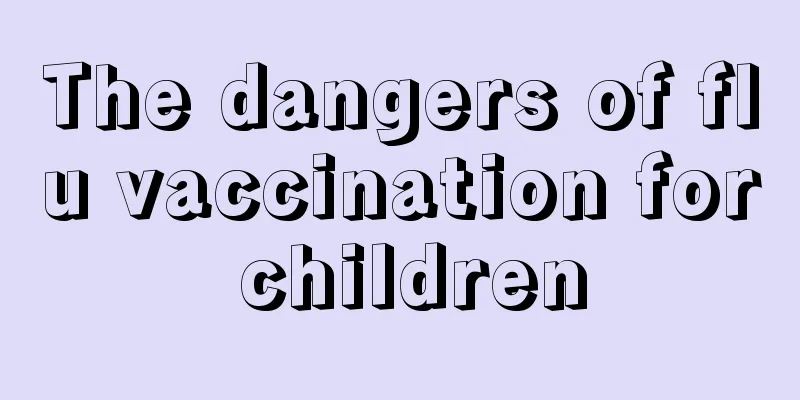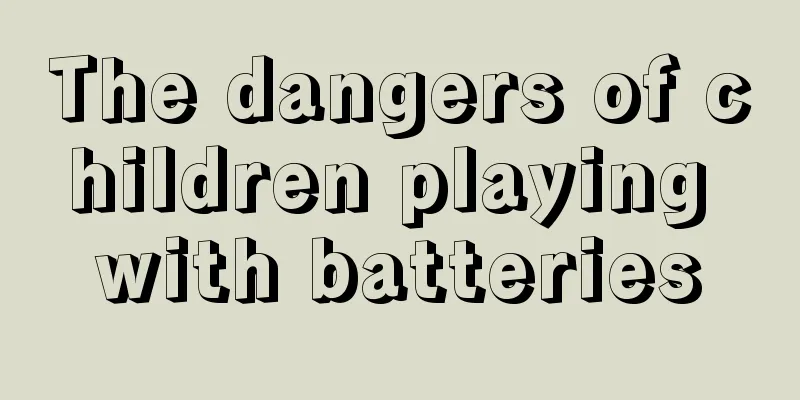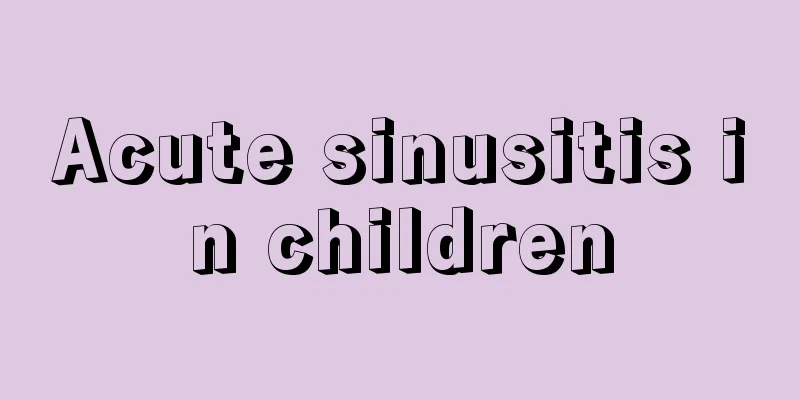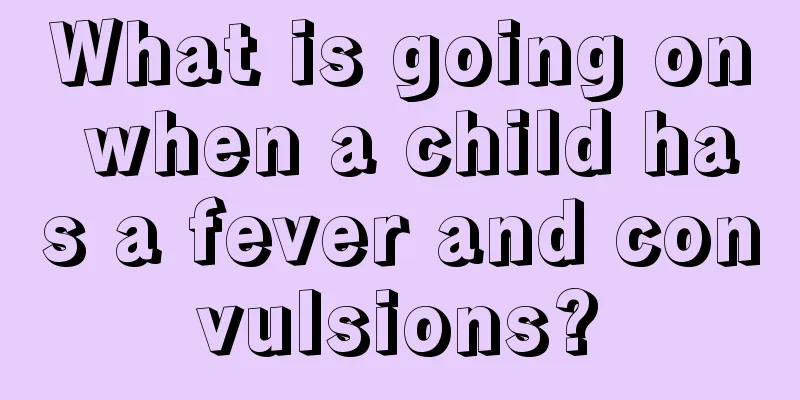The dangers of flu vaccination for children

|
We think it is normal for children to get flu vaccines. It is also a national requirement and we have an obligation to complete it. After all, many of the vaccines we receive are aimed at infectious diseases, and once such diseases occur, the consequences will be disastrous. But like every coin, there are two sides. The flu vaccine helps children improve their immunity, but what are its side effects? Flu vaccine, is it necessary for babies to get it? Are there any side effects to flu vaccines for children? Infants and young children have poor resistance and need to be vaccinated with various vaccines with protective functions every year. Therefore, it is necessary for babies to be vaccinated with the flu vaccine. Here, the editor brings you the side effects and contraindications of influenza vaccination for babies. Let’s take a look. Are there any side effects to flu vaccines for children? Children's flu vaccines have certain side effects, such as: 1. Local reactions: In placebo-controlled double-blind trials, the most common side effect of vaccination is pain at the injection site (affecting 10-64% of patients); this can last up to two days after the flu shot. Within 24 hours after vaccination, recipients may feel pain and tenderness at the injection site. These reactions are generally mild and short-lived. In most cases, they disappear on their own within 2 to 3 days and do not require further medical attention. 2. Mild adverse events: Overall, recipients tolerated the influenza vaccine well. These vaccines are inactivated, meaning they contain only inactivated viruses that are apparently incapable of causing disease. Therefore, respiratory illness after vaccination is an incidental illness unrelated to the influenza vaccine. Fourteen studies that analyzed by sex showed that women (both young and old) reported significantly more local reactions. 3. Systemic reactions: Mild systemic reactions may also occur. People who have not been previously exposed to the antigen in the vaccine (eg, children) may develop fever, malaise, and myalgias. These reactions occur within 6-12 hours after vaccination and generally last 1-2 days. Next, let’s take a look at the contraindications for babies getting influenza vaccinations. Contraindications for flu vaccination in babies Not all infants and young children are suitable for influenza vaccination. Children with congenital diseases should not be vaccinated. In addition, children with allergies, especially those who are allergic to eggs, must not be vaccinated. Or do not get vaccinated if you have a cold or acute illness. For children under 3 years old who need to receive two injections, if they are sick at the time of the second scheduled injection, the injection should be postponed. If the disease has a long course, do not get the second shot and focus on treating the disease first. Parents should take their children to a regular hospital to get the flu vaccine. Do babies need flu vaccines? Vaccination is especially important if your baby is at higher risk for flu, such as if he or she has diabetes, a weakened immune system, severe anemia, or chronic heart, lung (including asthma), or kidney disease. Children who are taking aspirin long-term for conditions such as juvenile rheumatoid arthritis also need a flu shot. Because taking aspirin can easily induce Reye's syndrome when encountering a viral infection. It takes about 2 weeks for the vaccine to start taking effect. Babies who are getting the flu vaccine for the first time need two shots, one month apart, to develop immunity. Influenza epidemics have a certain degree of seasonality. Epidemics in northern China generally occur in winter, while cases occur in the south in all seasons, with peak incidence in summer and winter. And because the influenza vaccine can more effectively protect people if it is administered 1 to 2 months before the peak of the influenza epidemic, the Chinese Ministry of Health recommends that the vaccination time be from September to November each year. |
<<: Can children's vaccines be administered in other places?
>>: What to do if children have blackheads on their noses
Recommend
Newborn baby convulsions
Children's bodies are relatively fragile, so ...
Why is my child always panting?
Children are a group we need to pay attention to....
Babies cry when they fart
In the early stages of development, babies' v...
What are the clinical manifestations of craniosynostosis?
Craniosynostosis is a common growth and developme...
What is going on when red spots appear on a child’s body after the fever subsides?
In daily life, it is very common for babies to ca...
Can a 1-year-old baby drink yogurt?
Many mothers need to pay special attention to the...
Treatment of yellow tongue coating in infants
As parents, when our children have yellow tongue ...
Why is the palm of the child hot?
What should we do if the baby's palms feel ho...
What causes convulsions?
Tourette syndrome is a chronic mental disorder th...
What to do if your child has a sore throat
Sore throat is mostly caused by factors such as l...
Symptoms of lobar pneumonia in children
Summer is here, and as the weather continues to g...
How to feed newborns scientifically
Reasonable feeding methods can help newborns deve...
Reasons for green and foamy baby stools
Many parents are very worried when they take care...
What are the symptoms of intussusception in children?
Intussusception in children is a common disease. ...
What should you do if your child's cough causes a headache?
When the seasons change, it is easy to catch a co...









